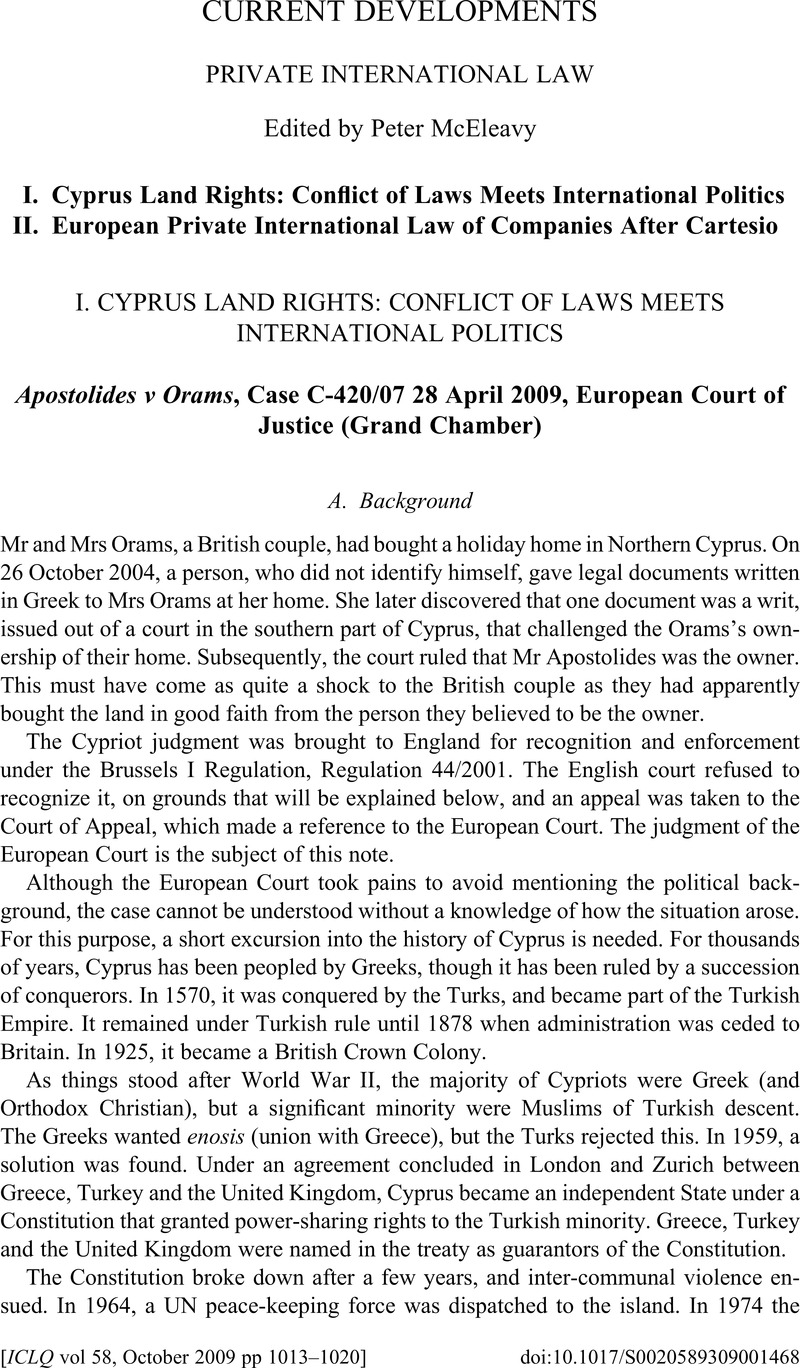Published online by Cambridge University Press: 21 October 2009

1 Their view was supported by the European Court of Human Rights, which held in Loizidou v Turkey [1997] 23 EHHR 513 that Greek-Cypriot owners of property in the TRNC were not deprived of their property rights by the Turkish measures. The TRNC subsequently adopted a scheme for compensation: see Apostolides v Orams [2006] EWHC 2226 (QB); [2007] 1 WLR 241 para 22. A comprehensive plan to solve the whole problem in Cyprus was put forward under the auspices of the United Nations (the Annan Plan), but this was rejected by the Greek Cypriots in a referendum in 2004, shortly before Cyprus became a Member of the EU. Since then, negotiations have continued.
2 Here ‘object’ really means ‘subject’, an example of the poor-quality drafting and translation so often found in EC legislation.
3 Apostolides v Orams [2006] EWHC 2226 (QB); [2007] 1 WLR 241. Although it is a principle of the Brussels I Regulation that the jurisdiction of the court of origin cannot be questioned in recognition proceedings, there is an exception regarding cases under art 22. This exception is laid down in Article 35(1), which provides that a judgment must not be recognized if it conflicts with s 6 of Chapter II, that is, with art 22.
4 Case C-281/02 Owusu v Jackson [2005] ECR I-1383.
5 Paragraph 59 of the judgment.
6 Of course, a new judgment might be given in subsequent proceedings, but that would be a different matter.
7 Case 166/80 Klomps v Michel [1981] ECR 1593 (paras 14–16 of the judgment and para 5 of the Ruling).
8 They would probably get short shrift from the Greek-Cypriot courts.